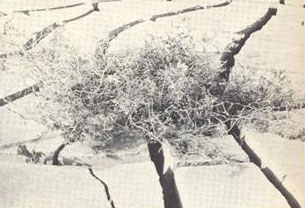Genetic control of root traits important for water use in horticultural crops
Genetic control of root traits important for water use in horticultural crops (DEFRA Project HH3616SPC, 2005-2010)
Project Leader: Dr Andrew J. Thompson
Project Team: Dr John Andrews, Mike McKee, Prof. Philip White, Dr James Lynn.
Water-use efficiency at the field level is determined to a great extent by the ability of the crop to capture water from the soil. Root traits are therefore an important consideration in development of crop varieties suited to drier environments. Potato crops are one of the biggest consumers of irrigation water, and potato yield is extremely sensitive to soil water deficits. Potato cultivars tend to have small, weak root systems that are unable to penetrate the plough pan and there is considerable scope to improve rooting traits for water and nutrient capture. This project aims to define the genetic loci that control rooting depth and penetration in the genus Solanum. The most advanced genetic systems for this study are available in Solanum lycopersicum (cultivated tomato) and its sexually compatible wild-relatives. Resources include a range of germplasm collections, mapping resources and a genome sequencing project.
This project is supported by a programme of genomics in the Solanaceae (Prof Graham Seymour) and is linked to a project “Targeting fertiliser applications to roots of wide-row crops” (Prof. Philip White).

Solanum chilense growing in a dry river bed (Charles Rick, 1973)
